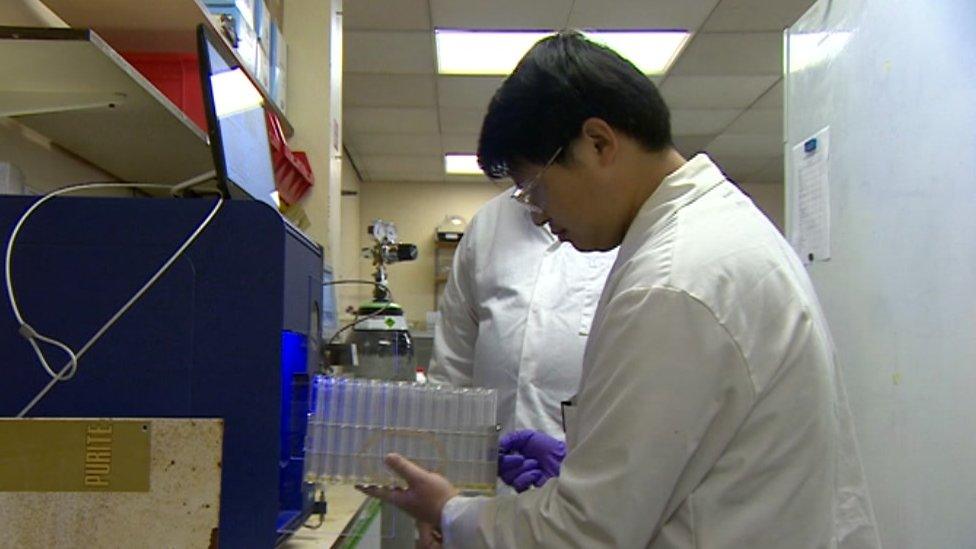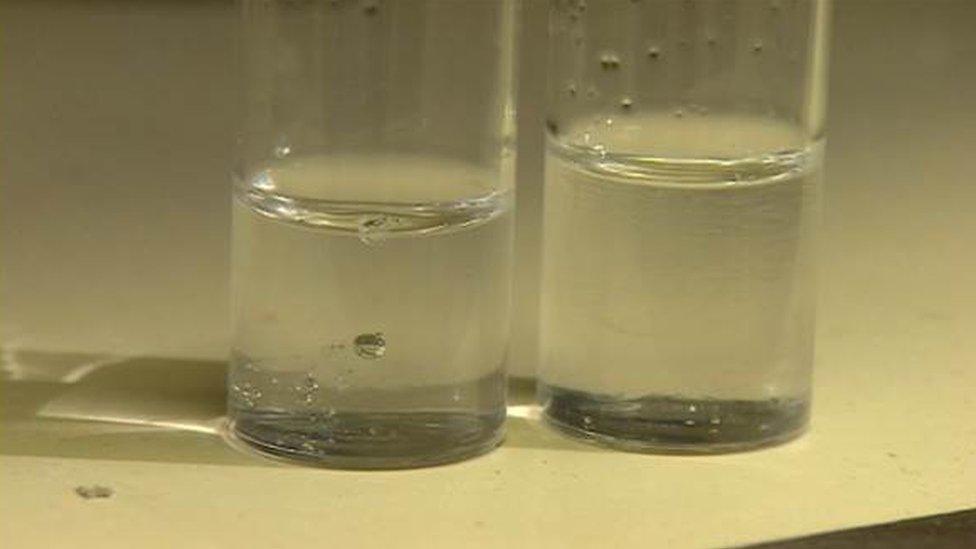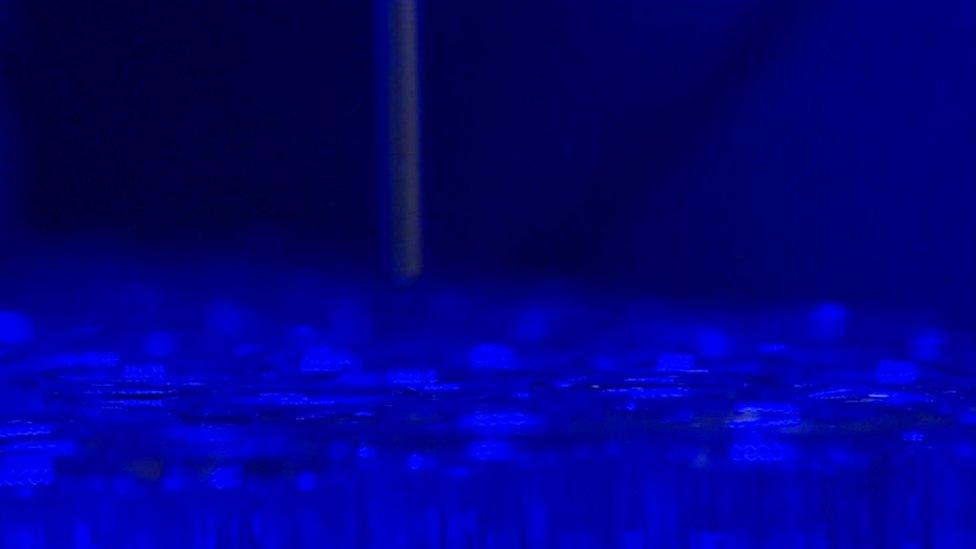'Smart' insulin could drastically reduce injections
- Published

The research project, based at the University of Birmingham, could take 10 years until it reaches clinical trials
For people with type 1 diabetes much of their time is spent controlling the disease by testing their blood and injecting insulin.
For young people with diabetes it's particularly complicated, but even old hands sometimes just experience "diabetes burnout" where it all seems totally overwhelming.
So the idea of "smart insulin", a way to deliver this essential drug without all the testing and injections is hugely attractive and now scientists in Birmingham are starting work on a delivery system that might allow them do just that.
In a chemistry laboratory in the city I went to talk to Dr John Fossey. He's just secured funding from an international diabetes charity for some exciting research into the "smart insulin" concept.
Dr Fossey and his team have used some very clever chemistry to create a gel that only dissolves in the presence of glucose. Indeed he showed me how his gel disappears in a glucose solution while just sitting there in ordinary water.

The gel is designed to dissolve in the presence of glucose
Automatic chemistry
The idea is to load up the gel with insulin, then as the glucose levels rise in someone with diabetes, the gel dissolves and the insulin is released into their system.
It would be an alternative to the current methods where a diabetic has to carry out blood tests, work out the right dose of insulin and then inject it. With the gel, the chemistry does all this automatically.
Imagine you are a parent to a young child with type 1 diabetes and they want to go on a sleepover. Sadly the parent hosting the party is not comfortable overseeing the blood testing and insulin injections your child will need. Well with this gel you could inject your kid once, perhaps under the arm, and the gel would take care of everything. It might even be possible to reduce injections to just one a week.
Other teams are trying something similar, but Dr Fossey believes his gel has unique chemistry that makes it the best prospect for this sort of approach.

The project is currently funded by an international diabetes charity
Long-term project
It is very early stages in the research though. The diabetes charity funding lasts for two years. After they've worked out the chemistry, the project will then move into a biology lab and then eventually, in about 10 years, we might see clinical trials in humans.
That's assuming it all goes well.
So it is a long-term research project, but those involved in diabetes research say this is a really exciting potential new treatment.
You can read more about Dr Fossey's work here, external.